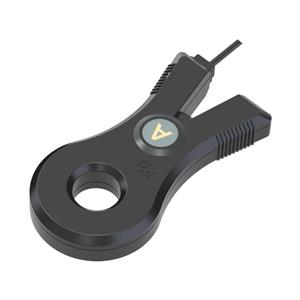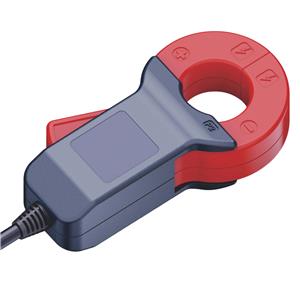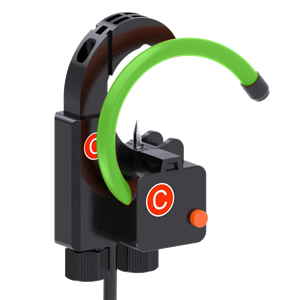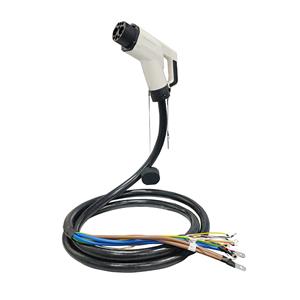-
3010-2021
Working principle of high frequency transformer
The high frequency transformer is the most important part of the switching power supply. The switching power supply generally uses a half-bridge power conversion circuit. When working, two switching transistors are turned on in turn to generate a 100kHz high-frequency pulse wave, and then the high-frequency transformer is used to step down and output low-voltage alternating current.
-
3010-2021
Knowledge of Transformer and Inductor
Transformers and inductors are easily confused because they have the same physical shape. There is only one rule that can be distinguished between them, the transformer is marked with "QTK", and the inductor is marked with "QHP".
-
0102-2026
Top 5 Features to Look for in a Current Transformer
Selecting the right current transformer requires careful consideration of accuracy class, rated parameters, construction quality, safety certifications, and application-specific features. These five key aspects ensure optimal performance, reliability, and compliance for any electrical measurement application. By prioritizing these features, engineers can make informed decisions that result in accurate measurements, extended equipment lifespan, and enhanced system safety.
-
3101-2026
IoT-Enabled Meters and Transformers
The convergence of IoT technology with traditional meters and transformers represents a paradigm shift in energy management, enabling unprecedented levels of visibility, control, and efficiency. These intelligent devices form the foundation of smart grid infrastructure, supporting more resilient, sustainable, and cost-effective energy systems. As technology continues to evolve, IoT-enabled energy equipment will play an increasingly vital role in managing the complex energy challenges of the future.
-
3001-2026
The Impact of Oswell's Micro Transformers
Oswell's micro transformers are making a substantial impact by enabling smaller, more efficient, and more reliable electronic designs across multiple industries. Their advanced engineering and robust construction support the ongoing trend toward miniaturization while maintaining high performance standards. As technology continues to evolve, these components will play an increasingly vital role in powering innovative applications and driving progress in electronic design and functionality.
-
2701-2026
Split-Core CTs vs. Clamp-On CTs
Both split-core and clamp-on current transformers serve vital but distinct roles in electrical measurement. Split-core CTs are the go-to solution for accurate, permanent monitoring installations, while clamp-on CTs offer unmatched convenience for temporary diagnostic work. Understanding their fundamental differences in design, accuracy, and application scenarios enables engineers and technicians to select the optimal tool for their specific needs. Oswell’s expertise in manufacturing both types ensures that professionals have access to reliable, high-quality CTs tailored for any electrical measurement challenge.
-
2601-2026
What is a Current Transformer
In summary, the current transformer is a fundamental component that enables the safe, accurate, and reliable operation of modern electrical networks. By stepping down high currents and providing essential isolation, CTs facilitate precise measurement, robust protection, and effective energy management. Oswell’s dedication to technological innovation and quality assurance positions it as a trusted provider of current transformers, empowering the development of smarter and more resilient power infrastructures globally.
-
2612-2025
Current Transformers: The "Heart" of Electricity Meters - precisely measuring household electricity usage to ensure fair billing.
Current transformers truly deserve their designation as the "heart" of electricity meters, providing the critical functionality that enables precise energy measurement and fair billing practices. Through advanced engineering, rigorous manufacturing standards, and adaptable designs, these components form the foundation of trustworthy energy management systems. As electrical networks become increasingly complex with the integration of renewable sources and smart technologies, the evolution of current transformer technology will continue to play a vital role in ensuring measurement accuracy, system reliability, and consumer confidence in the evolving energy landscape.
-
2312-2025
High-Frequency Transformer Core Selection - 20% loss reduction at 100kHz using high-permeability ferrites.
The strategic selection of high-permeability ferrite cores represents a critical engineering decision that directly impacts transformer efficiency, size, and reliability in high-frequency applications. Oswell's systematic approach to core material optimization, combined with advanced manufacturing techniques, demonstrates that 20% loss reduction at 100kHz is achievable through careful balance of material properties and design parameters. As power electronics continue to evolve toward higher frequencies and greater power densities, these core selection strategies will remain essential for developing next-generation energy-efficient systems.




